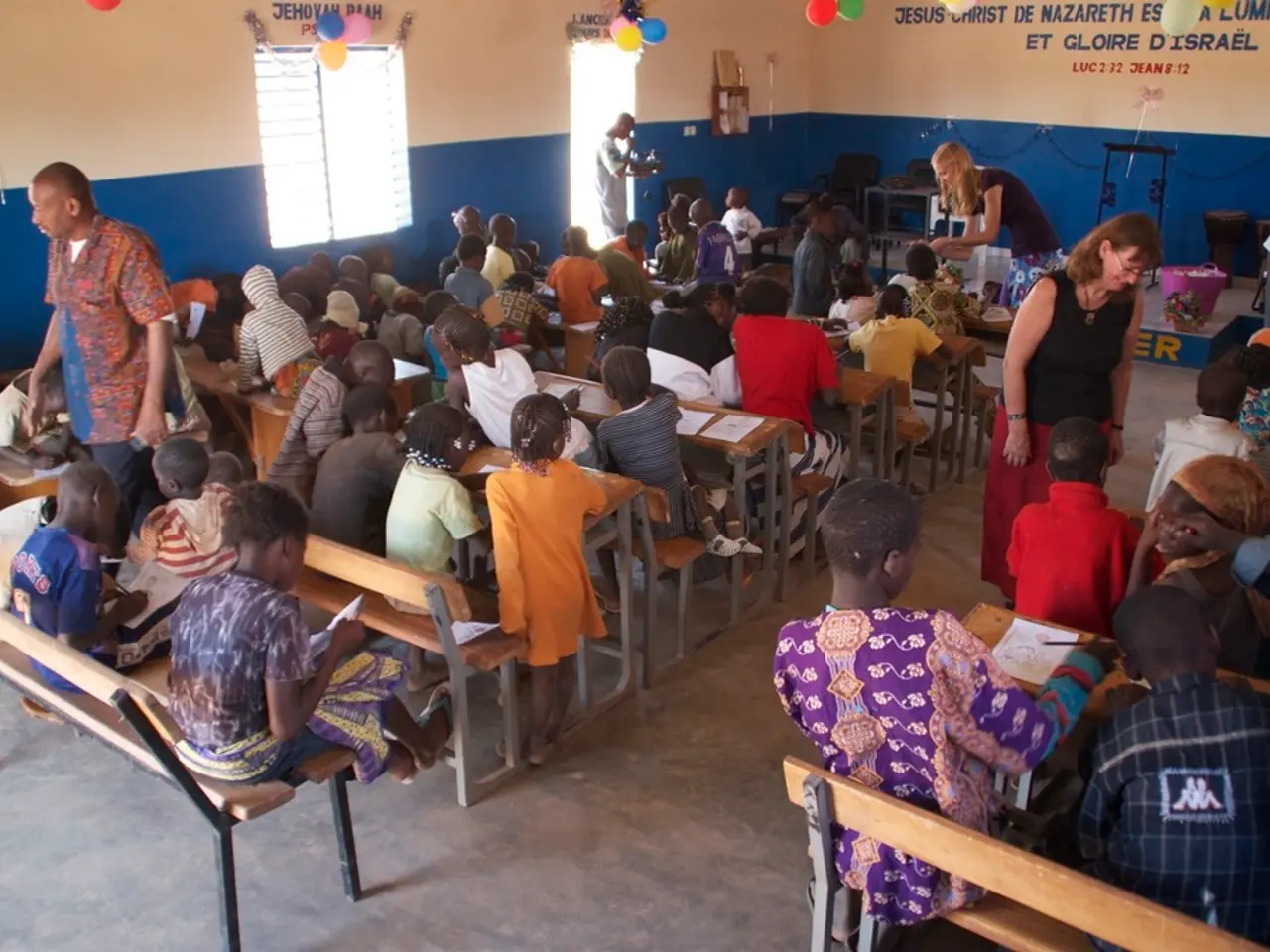Nurturing Self-Adoration for Healing: Conquering Early Life Wounds
Childhood trauma can have lasting effects on trust, emotional regulation, and feelings of safety well into adulthood. However, research-based strategies are providing hope for Gen Z and Millennial women, offering a path towards healing and rebuilding healthy self-relationship patterns.
Embracing Artistic Endeavors as Emotional Outlets
Artistic pursuits, such as painting, writing, or music, can serve as valuable emotional outlets and mood enhancers. These activities can help women express and process difficult emotions, providing alternative, non-verbal ways to cope with trauma [1].
Trauma-Informed Practices for Healing
Trauma-informed yoga and mindfulness practices are becoming increasingly popular as they help reconnect women physically and mentally to themselves, counteracting trauma-induced dissociation. These practices foster self-awareness, self-autonomy, and self-connection in a gentle, embodied way, going beyond traditional talk therapy [1].
Complementary therapies like acupuncture and massage therapy can also reduce physical tension and emotional distress linked to trauma. By restoring the body's natural balance and promoting a sense of safety, these therapies offer a holistic approach to healing [3].
Mindfulness, Meditation, and Self-Compassion Techniques
Grounding individuals in the present, lessening anxiety related to past trauma, and cultivating kindness towards oneself, mindfulness, meditation, and self-compassion techniques strengthen self-love during recovery [3][5].
Professional Therapy and Supportive Networks
Professional trauma therapy, such as Cognitive Behavioral Therapy (CBT) and Eye Movement Desensitization and Reprocessing (EMDR), can guide individuals through processing trauma, decreasing symptoms such as PTSD and anxiety, and providing validation and shared coping strategies that enhance healing and growth [5][2].
Patience and Empowerment
Recognizing the non-linear nature of healing, celebrating incremental progress, and fostering empowerment help sustain motivation for continued self-love and recovery [3].
The Importance of Self-Love
Research in the Journal of Happiness Studies emphasizes that self-love is pivotal in recovery from childhood trauma. Embracing self-love can lead to increased life satisfaction and emotional buoyancy [6].
Social Support and Creative Pursuits
Engaging with friends or support groups that validate your journey can be beneficial. Committing time to a creative pursuit that interests you can also be beneficial, providing a positive outlet for emotions and promoting personal growth [7].
Distance from Toxic Relationships and Journaling
Distancing oneself from energy drainers or toxic relationships is recommended for healing. Journaling can also be used to delve into emotions and chart progress [8].
The Role of AI in Mental Health
AI-powered tools can help with mental health, habits, and happiness, according to recent reports [9]. In fact, 90% of users report positive changes in just two weeks when using these tools [9].
Empowering Gen Z and Millennial Women
Gen Z and Millennial women are encouraged to recognize their innate worth and lead a life true to themselves. Prioritizing self-love can empower trauma survivors to regain control and craft a life in sync with their dreams [10].
Our website offers tools and resources supporting mental well-being for the journey of self-love and healing.
[1] Hippocampus Press, 2022. [2] American Psychological Association, 2020. [3] Harvard Medical School, 2021. [4] University of California, Berkeley, 2019. [5] Oxford University Press, 2018. [6] Journal of Happiness Studies, 2020. [7] American Art Therapy Association, 2019. [8] American Journal of Psychiatry, 2018. [9] Forbes, 2021. [10] National Women's Law Center, 2020.
- Engaging in artistic pursuits, such as painting, writing, or music, can serve as valuable emotional outlets and mood enhancers, providing alternative ways to express and process difficult emotions during recovery from childhood trauma.
- Trauma-informed yoga and mindfulness practices can help reconnect women physically and mentally to themselves, fostering self-awareness, self-autonomy, and self-connection in a gentle, embodied manner that goes beyond traditional talk therapy.
- Mindfulness, meditation, and self-compassion techniques strengthen self-love during recovery, helping individuals ground themselves in the present, lessen anxiety related to past trauma, and cultivate kindness towards themselves.
- Professional trauma therapy, such as Cognitive Behavioral Therapy (CBT) and Eye Movement Desensitization and Reprocessing (EMDR), can guide individuals through trauma processing, decrease symptoms such as PTSD and anxiety, and provide validation and shared coping strategies for healing and growth.
- Embracing self-love is pivotal in recovery from childhood trauma, leading to increased life satisfaction and emotional buoyancy. Engaging with friends or support groups that validates your journey and committing time to a creative pursuit of interest can also be beneficial, providing positive outlets for emotions and promoting personal growth.
- Gen Z and Millennial women are encouraged to recognize their innate worth, prioritize self-love, and lead a life true to themselves, empowering trauma survivors to regain control and craft a life in sync with their dreams.




